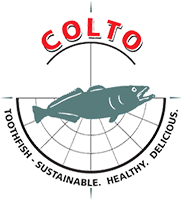Under the worldwide pioneer project consisting in farming Patagonian toothfish (Dissostichus eleginoides) in captivity, researchers of La Araucana Education Corporation recently obtained the first larvae from wild broodstock. Now, it is expected that in the next six years technology can start to be transferred to the producer industry.
“From now on, the work will not be as difficult as there is more information available and more experience as to similar species,” pointed out Alberto Reyes, a researcher who heads the initiative developed since 2008.
It is expected that the Patagonian toothfish, also known as Chilean seabass, be consolidated as an alternative aquaculture in Chile, reported Aqua. This species inhabits cold waters about 1,200 m deep, but there is still not much scientific information about its farming possibilities.
For Reyes, this initiative is a challenge because “it is a resource with a known market” and they are sure of having a major economic and social impact in the southern region.
After reaching the first spawning – in November 2012 -, researchers managed to obtain the larvae that will now become the first farmed juvenile specimens. The scientist explained that wild fish are kept in tanks, as they were adapted to living in captivity and showed a mortality rate that was rather low.
“Today we have about 60 fish caught, where in 2012 only two specimens have died. But beyond that, and after the adaptation period, the fish have proven very robust and docile. They are really adapted to be farmed,” ensured Reyes.
Besides, he added: “We are fortunate also that 80 per cent of the specimens of the school are female, which is ideal for this type of project.” In relation to food, Reyes stated that they initially consume live fish, but then they start eating artificial food prepared and enriched by the Corporation.
“The fish are in black ponds, with lids, in which we try to simulate the environment in which they live, both as to temperature, lighting and all the parameters that we can control,” he clarified. Fish are grown in the Experimental Station in Quillaipe, belonging to Fundación Chile.
The idea is to raise the juvenile specimens until they reach a commercial weight of about 7 kg in a span of a little over three years. The researcher added that they performed various analyses and cost-benefit assessments that indicate “clearly that this farming activity should be performed on land.”
Since market prices reach US$ 17/kg, with an average cost of US$ 10/kg, there would be “a very interesting range.”
This project was also joined by the Catholic University of Temuco, Chile ADL Diagnostic, the Universidad Austral de Chile, the University of Magallanes and the businesses Interseafood Chile SA, Pesquera Landes SA, Skysal, Atlantech Chile, apart from international experts.
– taken from Aquaculture Directory.
